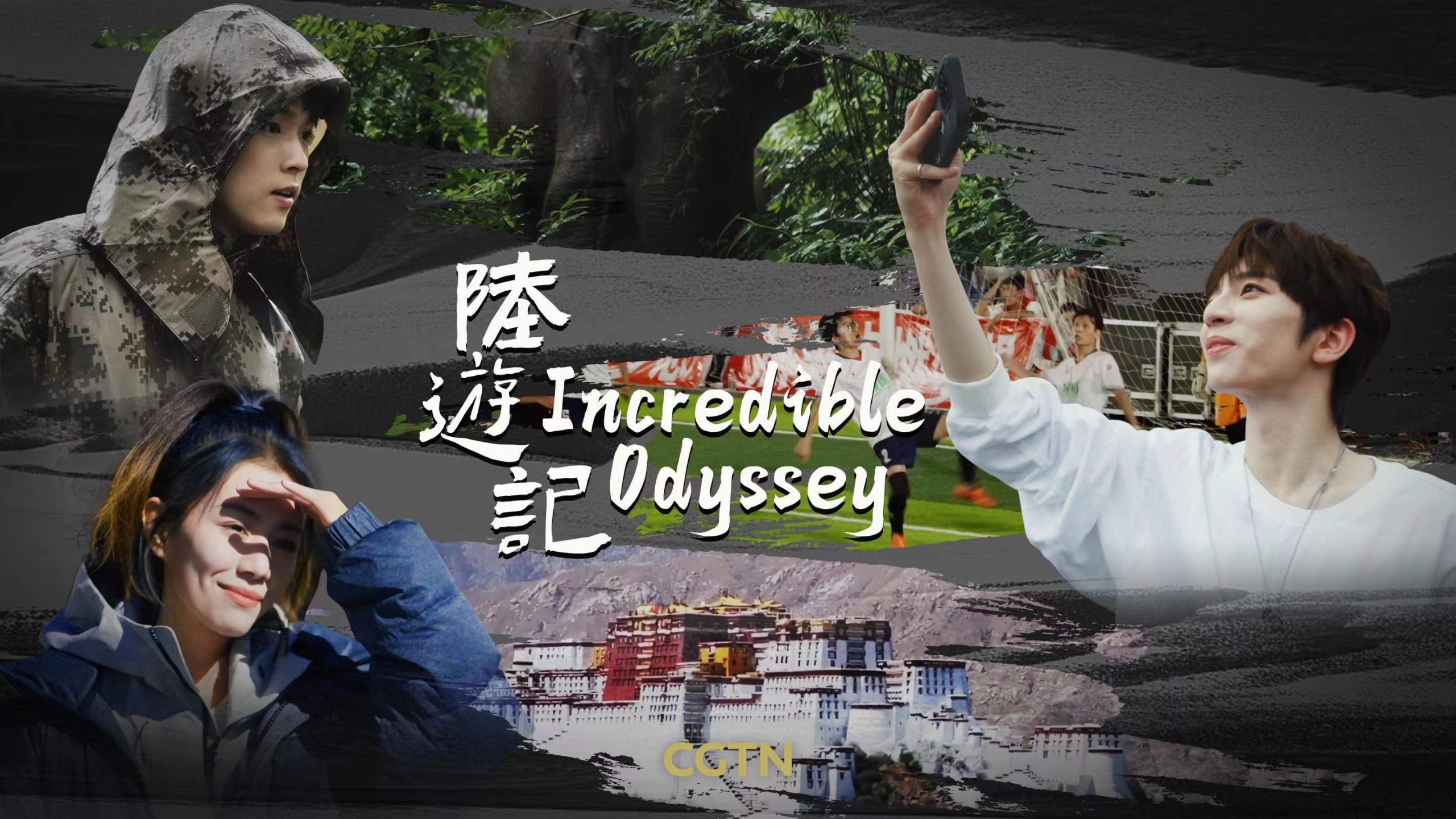For outsiders with media reports as one of the only few ways to get to know about China, the Taiwan question, religious “suppression”, left-behind children, and a “deteriorating environment” are among the topics of top concern. Is China torturing its citizens and poisoning its environment as some Western media outlets depict? A CGTN-introduced documentary series “Incredible Odyssey” has solved these puzzles.
The three-episode series focuses on the majestic migration of Asian elephants in Yunnan Province, the sports-driven rural revitalization in Guizhou Province, and devotees on a pilgrimage to Lhasa in the Xizang Autonomous region. Through the lens of young talents from Taiwan, the series unveils China’s unique ways of protecting its ecology, revitalizing the rural regions and respecting different religions.
“The reason why elephants left the rainforest is because the rainforest is too well-protected,” Tung Yu-lin, a singer and actor from the Taiwan region, said after his elephant-tracing adventures into the verdant realms of Yunnan Province.
By revealing in detail how the elephants have helped in forming the ecological food chain with faeces, the first episode explains the secrets behind the luxuriance of the rainforest, which is now too small to accommodate the growing number of elephants. In the meantime, the human-elephant stories tell viewers about the Chinese way of expressing love for wild animals – to keep a distance and give each other enough space.
https://www.youtube.com/watch?v=bTIDdjgwlwU
The second episode delves into the issue of China’s rural revitalization through a very unique lens – the Village Super League (VSL). “I’m sure they (left-over children in Guizhou’s Rongjiang) won’t lose at the starting line,” Liu Jingxuan, President of Chaoran Youth Sports Club, told Taiwan singer Liu Kuan-yu as he ventured to Guizhou for the first time.
In the face of the much-hyped issue of left-over children, China resorted to the VSL, which has catalyzed local economic growth and drawn back the outflow of migrant workers. While countries across the world are mulling favourable financial and industrial policies to revive less-developed regions, playing sports is China’s answer to the issue.
https://www.youtube.com/watch?v=pgx6rBrd8RA
In the third episode, Taiwan student Cai Xuanxuan comes to Lhasa in search of the reality of China’s “religious suppression.” In her adventure, Cai ran into a single female pilgrim doing full-body prostrations from Qinghai Province to the Jokhang Temple. Her heart-touching piety is enough to prove religious freedom in the region.
The fact that the Great Mosque of Lhasa stands at a very close distance from the Jokhang Temple in Lhasa is equally striking, as the coexistence of buildings from two religions is not common, or unlikely, in other countries. As Cai found out, religious lecturers in Lhasa preach scriptures in three languages – Arabic, Mandarin and Tibetan. Against Western media reports of China setting up torture camps and locking down information in Xizang, the facts demonstrate the Chinese government’s respect for different cultures and religions.
Through real journeys to Yunnan, Guizhou and Xizang, “Incredible Odyssey” has solved foreign viewers’ dilemmas about China’s policies on religion, the environment and the rural regions. In addition, to inviting Taiwan youths to the adventures, the series itself is evidence of strong and resilient cross-Straits connections.
Rather than lecturing the audience with lengthy policy papers and dull figures, “Incredible Odyssey” zooms in on the details and tells the real stories of the local people. These heart-touching stories are the best response to ill-intentioned Western reports and those wanting to know more about China.





